We learn by watching, so we all probably do our groceries and store our food in the same way our mom used to do it. We’re animals of habit, and we don’t stop to think if the way we do things is the best way.
There are lots of foods in our fridge that should actually be stored elsewhere at room temperature. Food tastes better and lasts longer, and although breaking habits is hard, perhaps you can start with the items below. Never ever put these 15 foods in your fridge.
Bananas
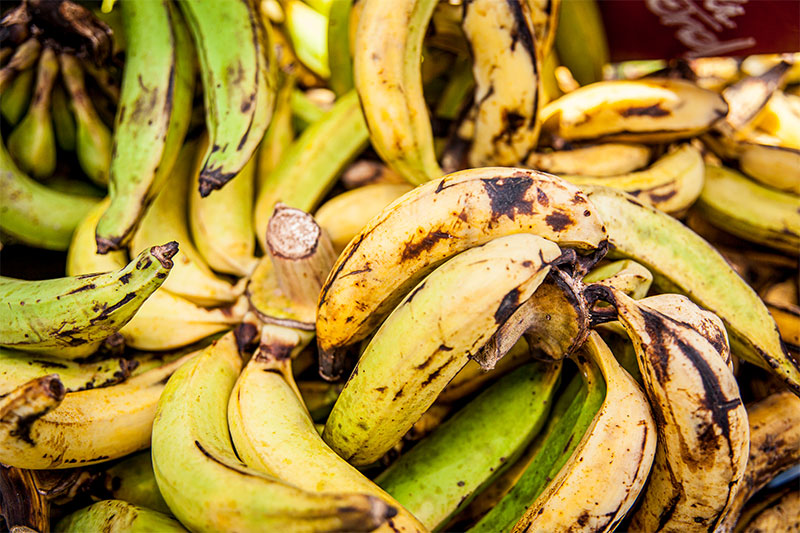
Did you know bananas are man-made? A few centuries we cross-bread a large, yellow mushy fruit that tasted like nothing with a small sweet fruit. The result was bananas.
When it comes to ripening, bananas are quite sensitive; they won’t develop nicely in the fridge. At room temperature, even the greenest banana will be ready to be enjoyed in a matter of days.
Bananas are quite sensitive to the cold too, and even a few hours in the fridge can cause them damage; you’ll see spots in their peels.
Bread

Unless you freeze it, which is totally OK, the fridge is not the place for bread. For starters, bread is absorbent and will pick up all the foul smells in your fridge, like garlic and onions.
The porous texture in bread is also heaven for fungi and is more prone to get moldy, soggy and mushy in the fridge that over the counter.
Honey
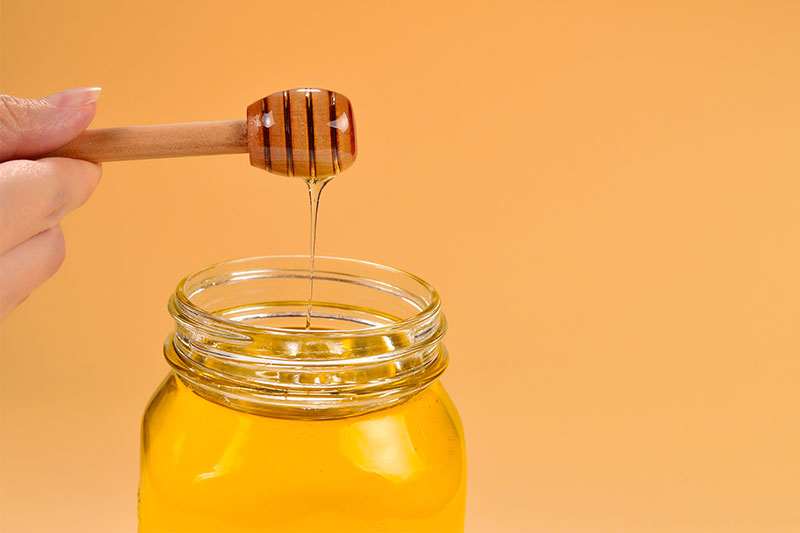
Honey is a very interesting food; it’s a pure form of sugar that is not only tasty but very sensitive to temperature shifts.
If you store bee’s honey in the fridge, you’ll notice that the sugar crystallizes ruining honey’s runny texture. The sugar crystals are totally harmless but not as attractive as liquid honey. Crystallized honey is also much harder to spread.
Onions and garlic
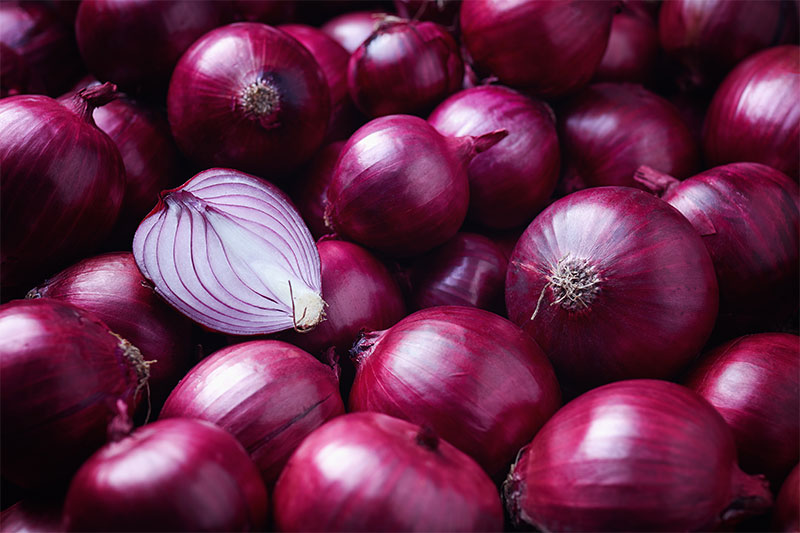
This might sound odd, but both onions and garlic keep better when stored outside the fridge. All those skin layers protect the bulbs from the exterior which means they’ll be just fine in your pantry. The refrigerator can cause dryness and mold in onions and garlic, changing their flavor and texture.
Hanging garlic around the kitchen is not only a charming, rustic decoration; it’s the best way of storing them while keeping them within reach.
Potatoes
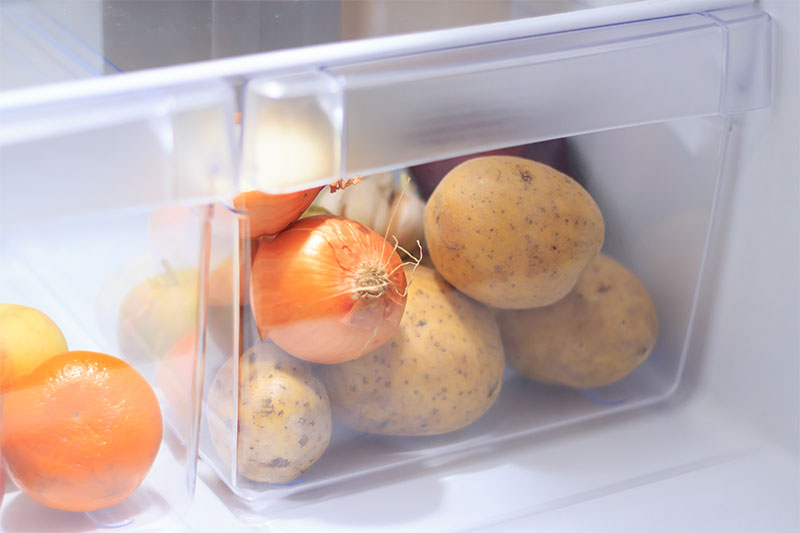
Potatoes love living in dark places. Actually, potatoes will not go bad for months in the right storage conditions. The fridge is too humid, though, and can make potatoes spout if unattended. A dark corner in your pantry is a far better storage space for potatoes than the fridge’s bottom drawer.
Be careful; sprouted potatoes can have toxic compounds that can upset your stomach.
Coffee
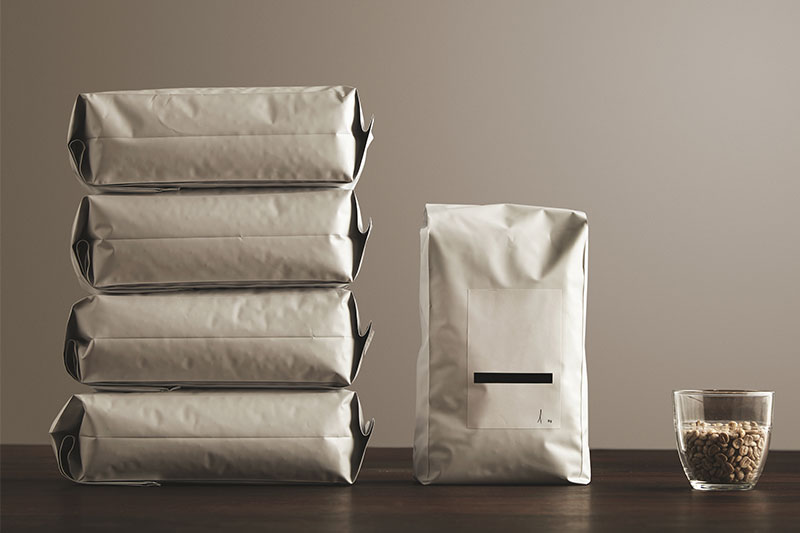
If you’re a coffee-lover, you’ll do anything from keeping your coffee as fresh as possible, and it’s only natural that the fridge is your first choice. The bad news is that coffee is porous and can absorb aromas from the environment.
Unless you like your morning brew infused with garlic aromas and scents of leftover pizza, you’re better off storing your coffee in an airtight container in your pantry.
Herbs
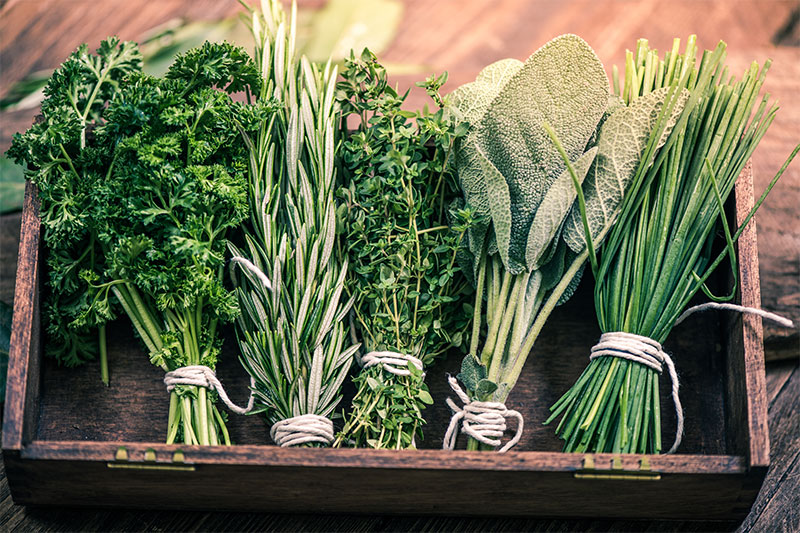
Cooking with fresh herbs is a great way to add color and aromatics to your food, but the plants have a very short shelf life. If you want to store aromatic herbs for more than a few days, avoid the fridge. The moisture will rot the delicate leaves and promote the development of mold.
Store your herbs outside, near the window with the stems dipped in water. Herbs are still alive and will very much enjoy being treated like plants and not food.
Avocados
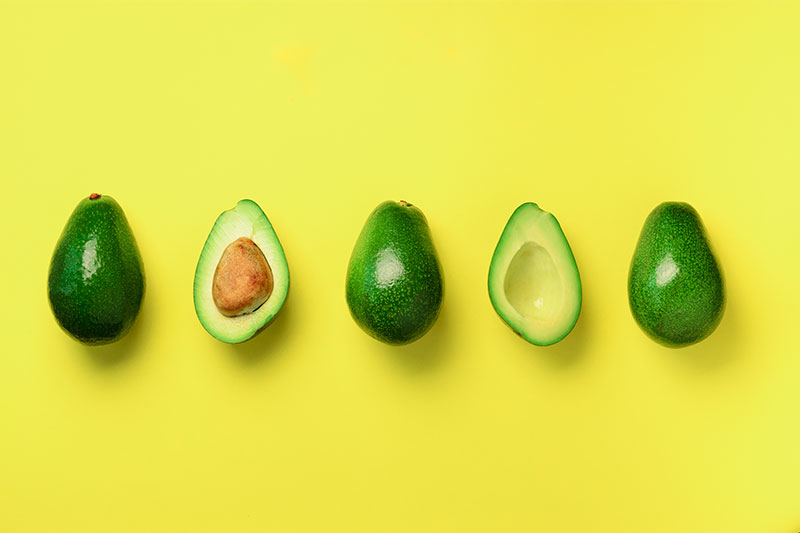
Avocados are tricky; either they’re unripe or overripe, it’s hard to get them just right! Avocados ripen incredibly fast, and it takes practice to determine if they’re ready to eat. In the fridge, avocados could develop brown spots before achieving maturity, and they’ll take days to mature.
Over the counter, avocados will be ready in a few days. If they’re firm but slightly soft to the touch and you can easily remove their stem, then they’re ready.
Melon
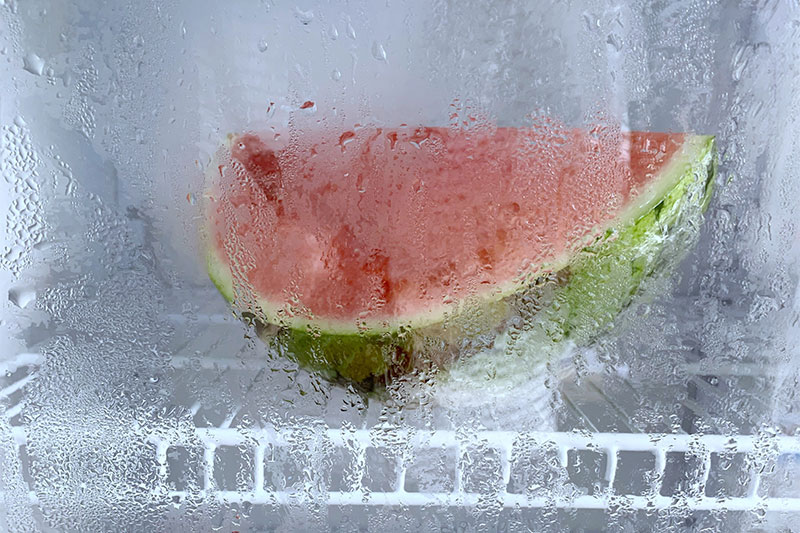
As long as your honeydews, watermelons, and melons are still whole, it’s better to keep them over the counter. The flavor intensifies, and the antioxidants in the fruit stay intact. The fridge will water down the flavors and mess with the fruit’s firm texture.
Once cut them open, store your melons in the fridge and enjoy within a few days.
Nuts
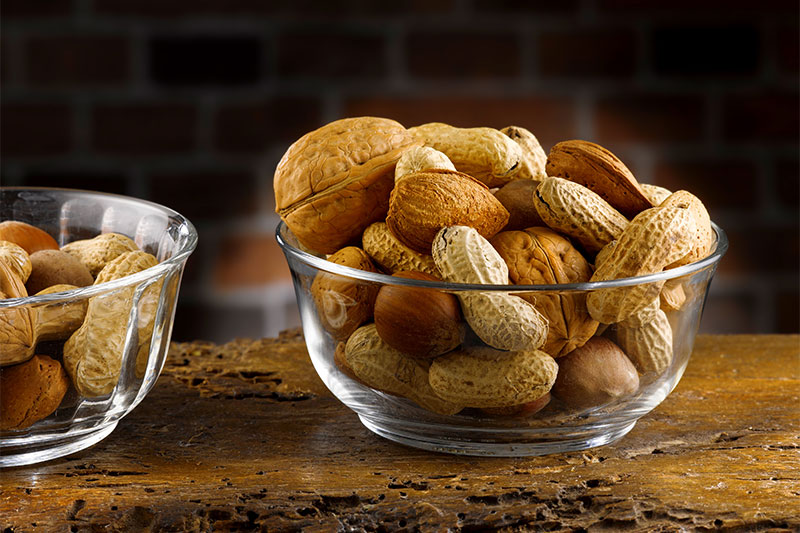
Nuts are some of the most complex foods around; they’re loaded with fiber, proteins, minerals, and vitamins; they’re tasty too, but they also absorb aromas from their surroundings.
Nuts can end up tasting a bit like garlic if unattended. The fridge will also weaken your nut’s texture and will get mushy. Store them in your pantry in an airtight container instead.
Spreads
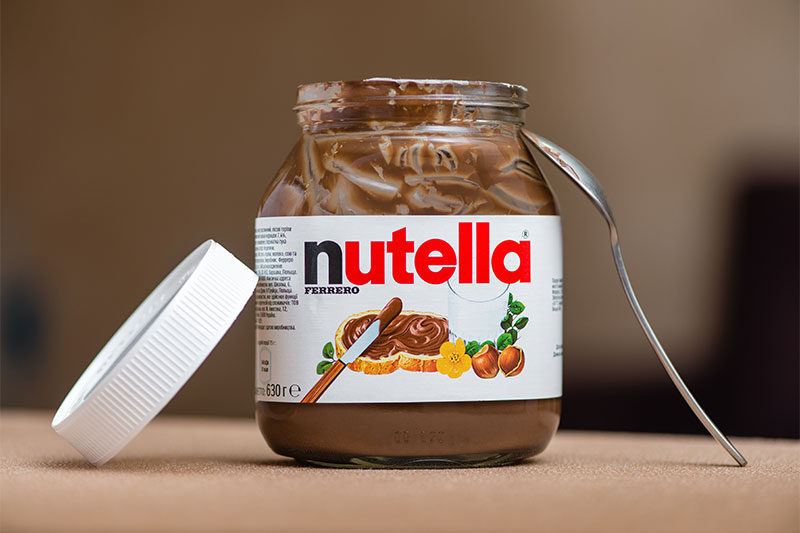
Hazelnut spreads, but also all kinds of spreads, including nut butter, are better when stored in the pantry, they’re stable enough to resist bacterial contamination, and they spread much easier. There’s no good reason to store these spreads in the fridge as long as you eat them within the first few months. Who wants a spread that’s impossible to spread, anyway?
Apples
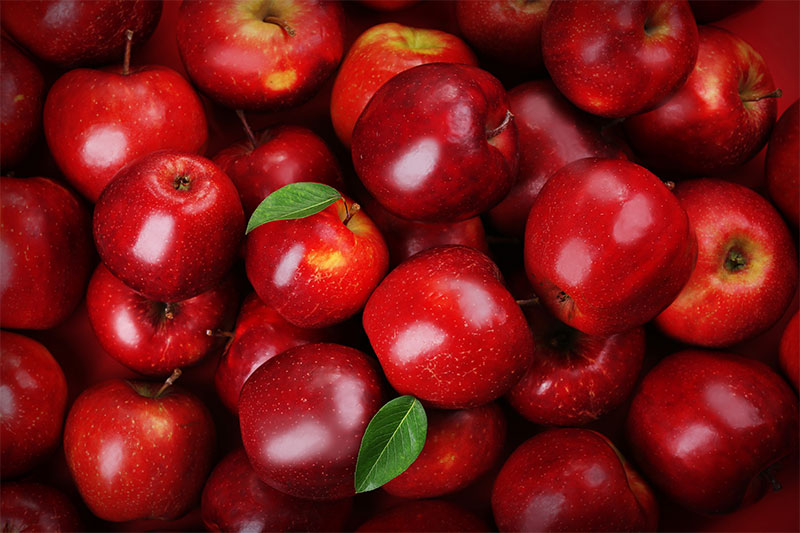
Apples will lose their crisp texture in the fridge. They will also lose some of their flavors and will get bruised and moldy easier. Apples are quite resistant, and they love being stored at room temperature. Even better, apples are nice looking and the perfect table centerpiece.
Berries
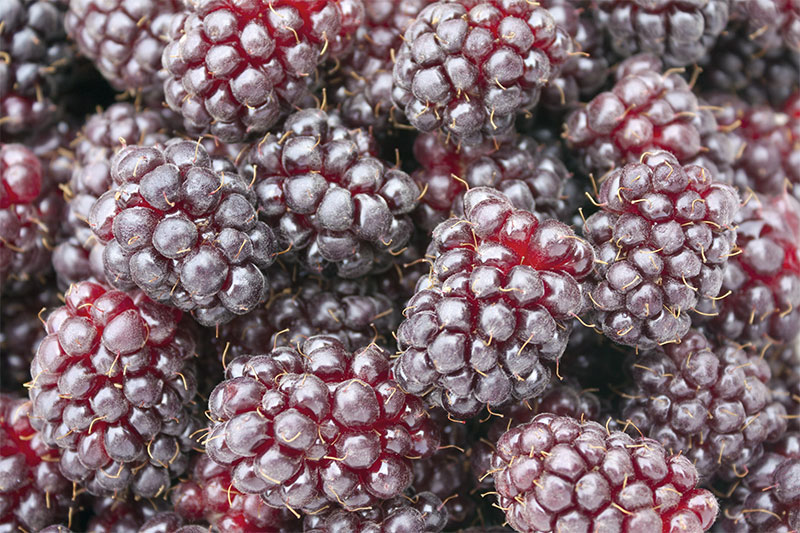
Berries are delicious; real treats of nature and they’re very healthy too, they’re packed with antioxidants. Sadly, they have short lives and will get moldy in just a couple of days. Although you can’t avoid the berries decay unless you freeze them, they’re a bit safer at room temperature. The fridge’s moisture will make them mushy and moldy overnight.
Oil

Not all oils are created equal; some are quite resistant, and others very sensitive. Coconut oil and olive oil, for example, are better stored at room temperature, or else they can solidify or become hazy in your fridge.
Grain oils like corn oil or canola oil are even more resistant and will be perfectly OK outside the refrigerator too. Butter might be the only cooking oil you should keep in the fridge.
Pickles
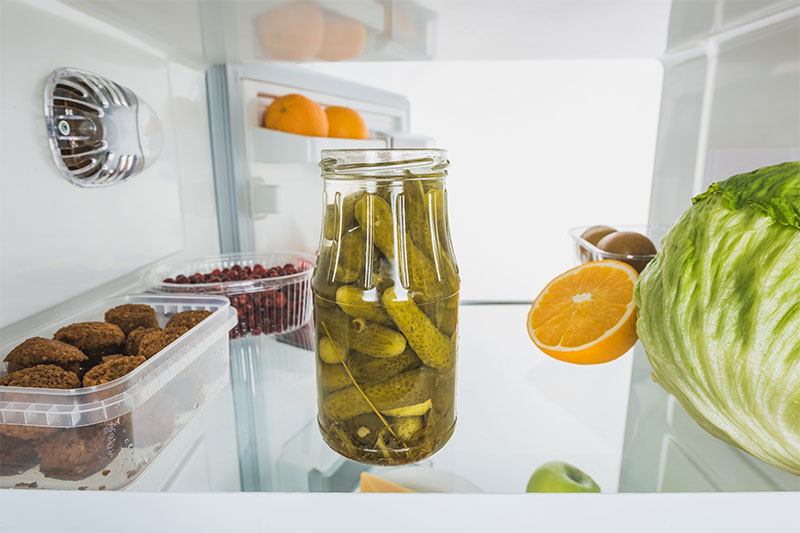
We all have a jar (or two) of pickles in the fridge, but that’s not at all necessary. Pickles are already treated to withstand the test of time; they’re preserved in brine. In the refrigerator, they’re just wasting space. That goes for all picked food, including sauerkraut and kimchi.
How Many of these did you know?
We bet at least a few of the above are news for you. We all do our groceries and jam-pack our fridges with all kinds of stuff every month, but no one tells us the dos and the don’ts.
Some things are better stored in the pantry or over the counter, that’s how it is. Now you’ll enjoy your favorite foods at their best, and you’ll have some extra space on the fridge!


